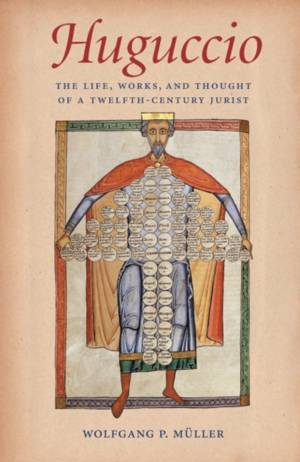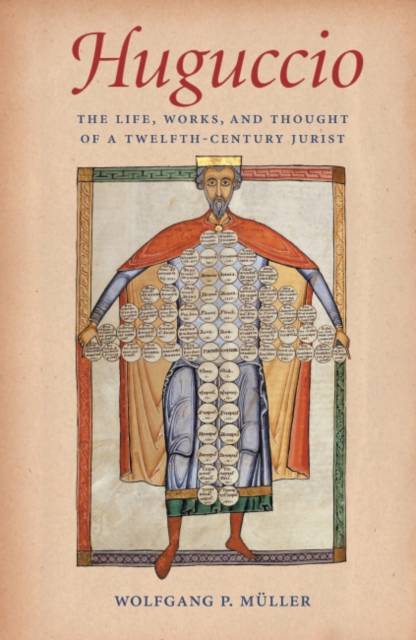
- Retrait gratuit dans votre magasin Club
- 7.000.000 titres dans notre catalogue
- Payer en toute sécurité
- Toujours un magasin près de chez vous
- Retrait gratuit dans votre magasin Club
- 7.000.0000 titres dans notre catalogue
- Payer en toute sécurité
- Toujours un magasin près de chez vous
Huguccio The Life, Works, and Thought of a Twelfth-Century Jurist
The Life, Works, and Thought of a Twelfth-Century Jurist
Wolfgang P Muller
56,45 €
+ 112 points
Description
Huguccio was an important lawyer of the medieval church, bishop of Ferrara, and one of the greatest representatives of twelfth-century scholasticism. In the first book-length study of this influential figure, Wolfgang P. Mueller provides a critical account of the biographical information on the man and his writings. He discusses the various aspects of Huguccio's career and thought as well as the manuscript tradition of some of his works. The author's scholarship rests on direct consultation and painstaking analysis of enormous quantities of manuscript material. First Mueller dissects the complex traditions that led scholars to identify Huguccio the canonist with Huguccio of Pisa, a grammarian and author of an influential and popular etymological guide to Latin. Mueller is the first scholar to systematically examine the evidence of Huguccio's life and writings in order to provide a carefully detailed consideration of the question of whether the two were one person. His reevaluation of the evidence shows that there is no convincing proof that the two were the same person. Mueller next examines the evolutionary stages of the difficult and complicated manuscript tradition of Huguccio's Summa decretorum. The author locates and describes the many additions to the Summa, some of which were written by others but have been mistakenly attributed to Huguccio. M ller's examination of the bishop's attitude toward Roman civil law and theology provides an insight into the complexities of medieval legal thought. According to the author, Huguccio did not distinguish clearly between moral and legal precepts but considered them a continuum. In an especially insightful introduction and epilogue, the author discusses some of the fundamental notions, limitations, and doctrinal alternatives confronted by Huguccio and his colleagues. The introductory chapter in particular presents a masterly overview of modern scholarship on Huguccio. This book provides the point of departure for anyone wishing to study Huguccio first-hand. It will be worthy reading for students of medieval canon law and an essential addition to all libraries supporting research in medieval studies
Spécifications
Parties prenantes
- Auteur(s) :
- Editeur:
Contenu
- Nombre de pages :
- 232
- Langue:
- Anglais
- Collection :
- Tome:
- n° 3
Caractéristiques
- EAN:
- 9780813228365
- Date de parution :
- 01-01-94
- Format:
- Livre broché
- Format numérique:
- Trade paperback (VS)
- Dimensions :
- 152 mm x 229 mm
- Poids :
- 344 g

Les avis
Nous publions uniquement les avis qui respectent les conditions requises. Consultez nos conditions pour les avis.






